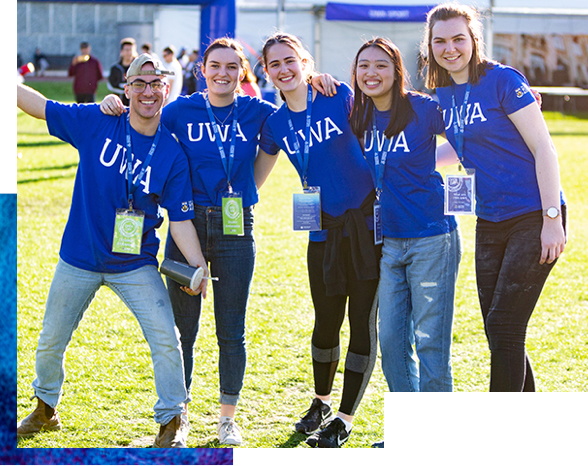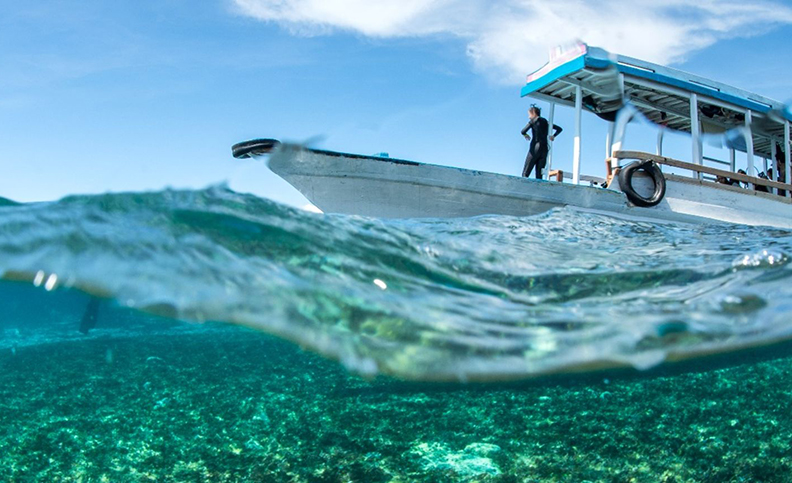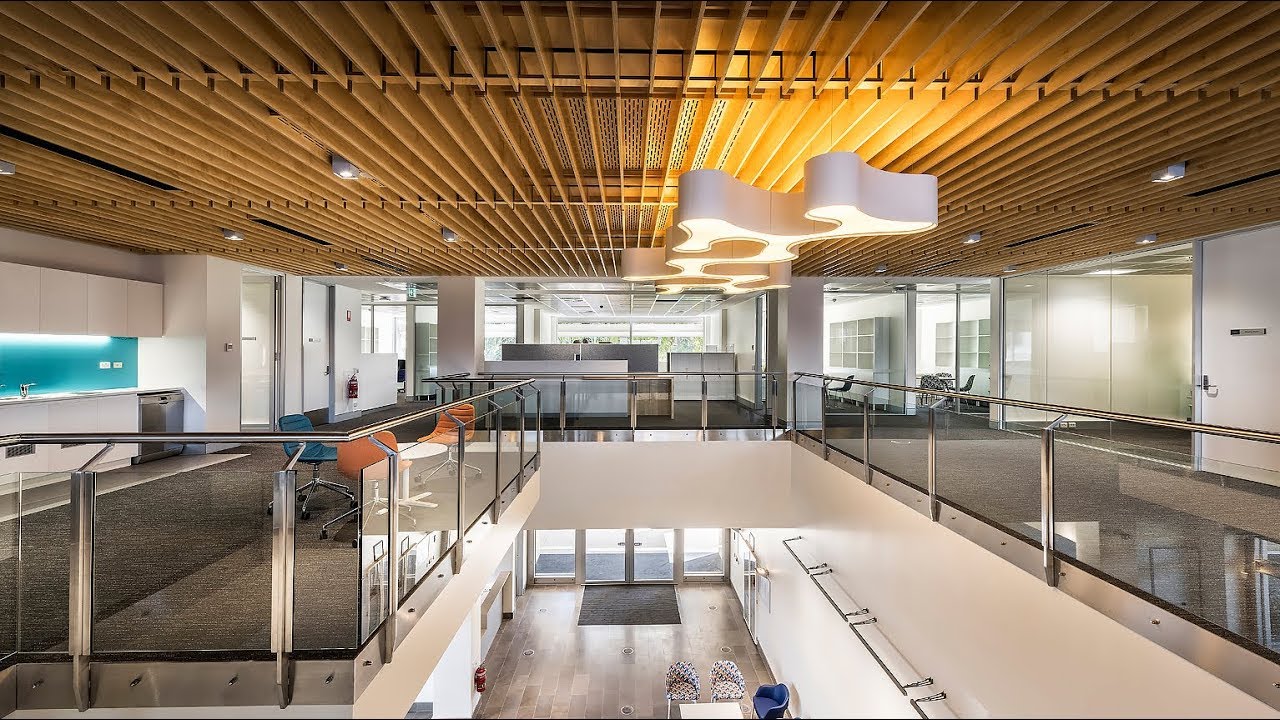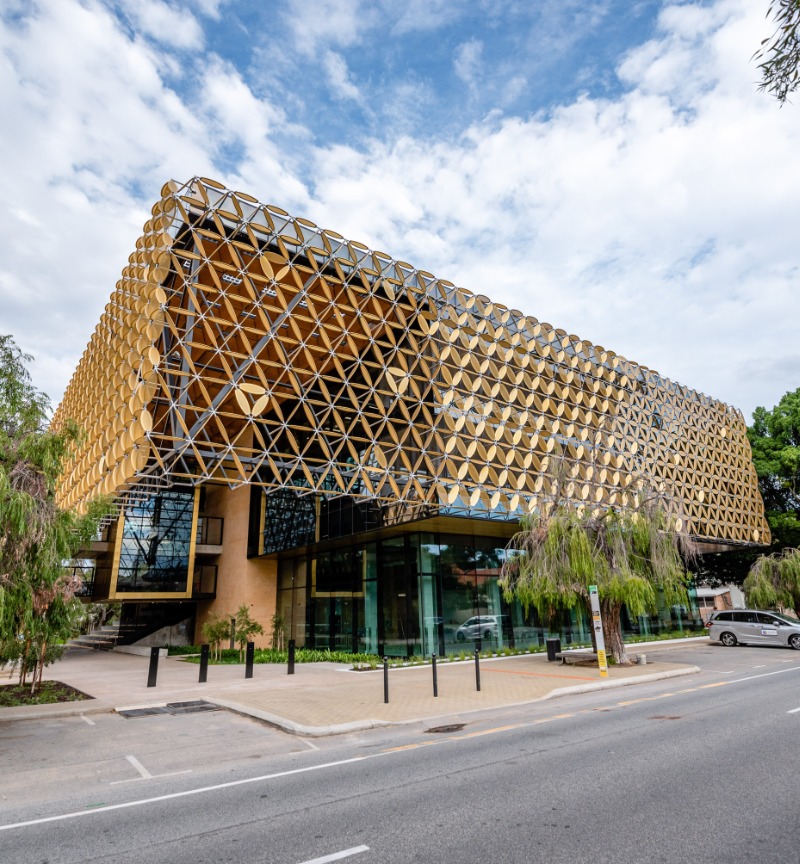Postgraduate
Master of Offshore and Coastal Engineering
Contact us
Address
Student Central
The University of Western Australia (M355), 35 Stirling Highway, Perth, Western Australia 6009
Telephone
131 UWA (131 892)
International
(+61 8) 6488 1000
Hours
Frequently asked questions
Events you may be interested in
Show more eventsCareers and further study
Explore the career opportunities available to you.
Career Pathways
You'll be able to find careers in industries including:
- Offshore and coastal marine
- Shipping/ports
- Marine construction
- Coastal engineering and management
- Marine renewable energy (including offshore wind, wave and tidal energy)
- Aquaculture
- Mining, oil and gas
- Nature-based solutions
- Defence and security
- Subsea engineering
Roles include:
- Offshore engineer
- Coastal engineering
- Marine renewable energy engineer
- Subsea engineer
- Coastal manager
Master of Ocean Leadership
Further Study
Further study will allow you to gain a Doctor of Philosophy (PhD). It will open up opportunities in academia and research to help you to pursue your goals in a wide range of careers, depending on your area of research.
Fees and scholarships
Learn more about the fees that apply to you for this course.
Domestic Student Fees
For Commonwealth-supported places, student contribution amounts are charged by unit, based on area of study. For a fee estimate, go to the Fee Calculator and select “I want to price my units”. Fees are subject to annual indexation. Refer to the Handbook to identify the units required. More information on how fees are calculated.
Domestic Student Fees for Full-Fee Paying Places
If you're not eligible for a Commonwealth-supported places, you will be charged a for Full-Fee Paying place. For Full-Fee Paying places, students are charged an annual course fee, charged per credit point at a rate dependent on the course in which the student is enrolled. Annual course fees are calculated based on an annual study load.
Check the handbook to confirm the annual study load for your course. Visit the Fee Calculator and select your course type to find out more. Fees are subject to annual indexation. More information on how fees are calculated.
Scholarships
Scholarships are available to students from a diverse range of backgrounds, including academic achievement, financial need, educational disadvantage, leadership and community service, artistic or sporting achievements, and being from a rural or remote area.
Cost of living
International Student Fees
Onshore international students are charged an annual course fee, charged per credit point at a rate dependent on the course in which the student is enrolled. Annual course fees are calculated based on an annual study load. Check the handbook to confirm the annual study load for your course.
Find out more about international student tuition fees and visit the fee calculator for the relevant course fees.
Fees are subject to annual indexation.
Scholarships
Scholarships are available to students from a diverse range of backgrounds, including academic achievement, financial need, educational disadvantage, leadership and community service, artistic or sporting achievements, and being from a rural or remote area.
Cost of living
Admission requirements
If you’re interested in furthering your career by studying this postgraduate course, find out the admission details below
Admission Requirements
(a) a Master of Professional Engineering;
or
(b) a Bachelor of Engineering (Honours) degree, or an equivalent qualification, as recognised by UWA;
and
(b) the equivalent of a UWA weighted average mark of at least 65 per cent;
and
(c) prior studies in Civil Engineering; or Chemical Engineering or Environmental Engineering; or Mechanical Engineering; or Mining Engineering.
Ranking and Selection Process
English competency
English is the language of instruction and assessment at UWA and you will need to meet the English language requirements of the University to be eligible for a place.
Minimum overall IELTS score of 6.5, with no band less than 6.0.
How to apply

Ready for the next step?
Find out how to apply through our simple online application process.
We'll guide you through our entry requirements, admission pathways available to you and application deadlines for your chosen course.
We can’t wait for you to join us!
Course details
The Master of Offshore and Coastal Engineering (MOCE) prepares graduates from engineering backgrounds with the knowledge and practical skills to lead innovation in offshore and coastal engineering. The MOCE program is unique in its content and is designed to prepare graduates for a wide range of ocean-related career pathways.
This course will be subsidised for Australian residents through Commonwealth Supported Places (CSP) as of Semester 1, 2024. Visit our Tuition Fee Calculator for CSP rates and an estimate on your course fees.
About the course
Offshore and coastal engineering provides the foundation for global prosperity linked to the Blue Economy. This course integrates disciplinary knowledge across the whole water column, from oceanography, hydrodynamics, structural and geotechnical engineering, and data science, to provide students with the multidisciplinary knowledge and practical skills required to analyse and design different ocean engineering solutions.
Quick details
- Available 2023
- Perth (Crawley campus)
- Full-time
- Part-time
- On-campus
- Semester 1, Semester 2
- Postgraduate
- 62570
- 110776C
Why study this course?
- UWA is the preeminent Australian University in developing ocean engineering research solutions within offshore and coastal environments, with the course delivered by leading experts in the field.
- The course will equip graduates to take on leadership positions in offshore and coastal engineering, offering an outstanding student experience, drawing on UWA's research expertise, global networks, industry connectivity and breadth of oceans teaching.
- Graduates will develop advanced knowledge and practical skills that are in high demand by employers in a wide range of ocean industries.
Course structure
Postgraduate coursework degrees and combined (coursework and research) degrees comprise a number of units. Refer to the course structure for more information.
You'll learn to
- Apply technical and scientific understanding of the principles governing offshore and coastal engineering from the ocean surface to the seabed.
- Discuss ocean processes that affect ocean operations, safety and engineering design.
- Recommend the research and technology pathways for current and future offshore and coastal engineering.
- Solve offshore and coastal engineering problems with creativity and initiative.
"The Master of Offshore and Coastal Engineering is a unique international degree that prepares graduates with the multidisciplinary knowledge and practical skills required to lead innovation in both offshore and coastal engineering.
Students are taught by industry-connected university staff from within Australia’s top ranked ocean engineering program, which enables graduates to pursue a wide range of ocean-related career pathways in areas that are in high demand from employers.
The degree provides a unique student experience, by integrating content into UWA’s world-class ocean engineering research infrastructure and leveraging its strong industry networks."
Ryan Lowe - Professor, UWA Oceans Graduate School
Your teachers
This course will be taught by a number of academics with knowledge across areas of offshore and coastal engineering with expertise in oceanography, hydrodynamics, geotechnical engineering and data science.

UWA Oceans Institute

The UWA Oceans Institute brings together the University’s multidisciplinary research strengths across areas including oceanography, ecology, engineering, resource management and governance to address key ocean challenges.
Indian Ocean Marine Research Centre

Purpose-built collaborative facility for marine science and ocean engineering research.


